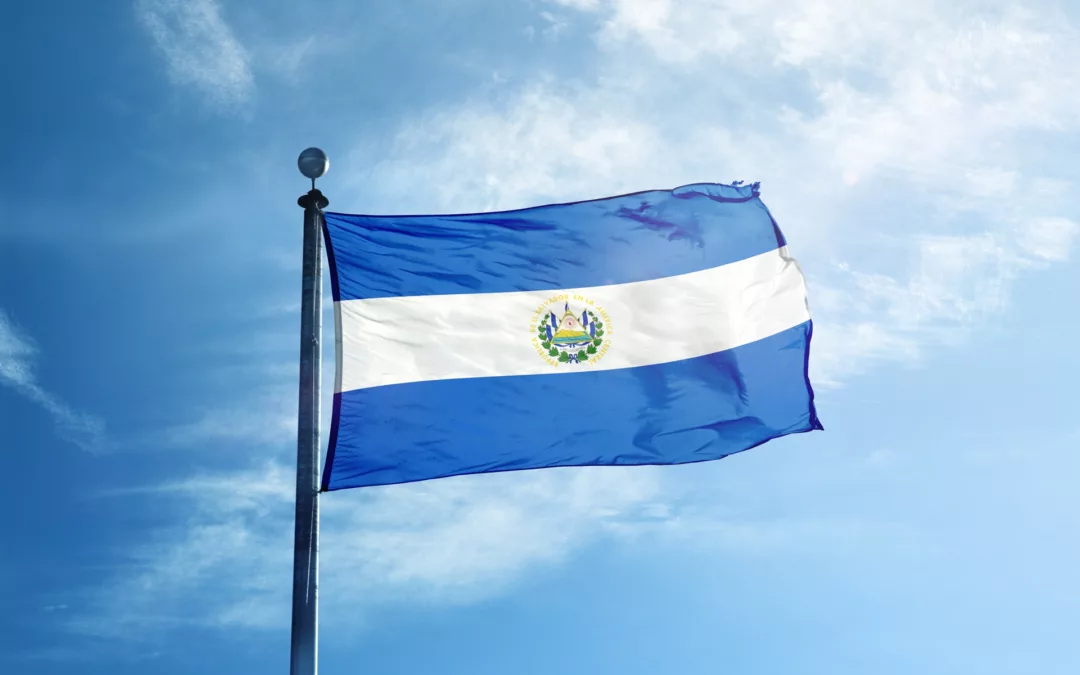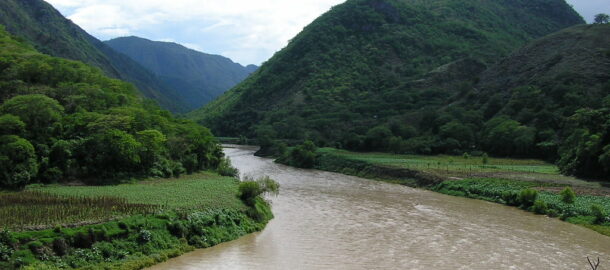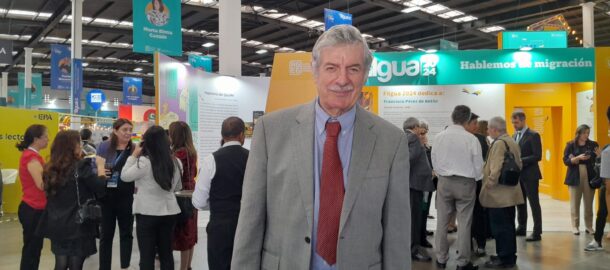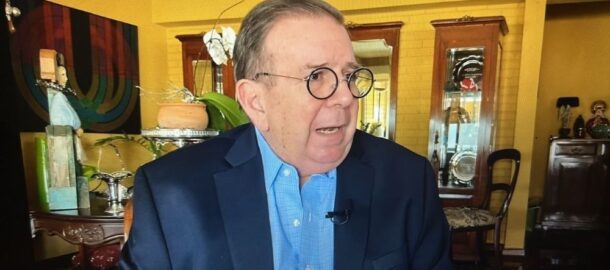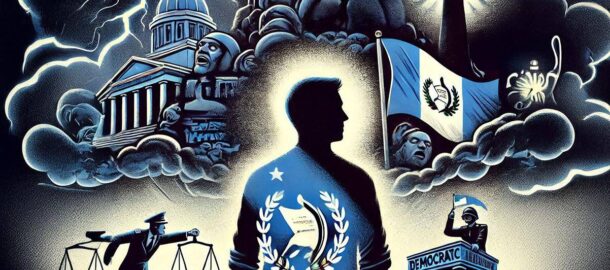1. Las Naciones Unidas y un importante grupo de países amigos promotores, viabilizaron la firma de los Acuerdos de Paz en Chapultepec (enero de 1992) con los que se puso fin a la guerra civil en El Salvador y se cimentaron las bases para la convivencia democrática, el respeto a la institucionalidad y a los derechos humanos, pasando la página a décadas de abusos y dictaduras. Desde entonces, el compromiso, el apoyo político y la cooperación de la comunidad internacional han sido fundamentales para la vigencia de los principios y valores democráticos establecidos en dichos Acuerdos.
2. El próximo 1 de Junio se consumará la mayor ruptura constitucional e institucional de El Salvador desde la firma de los Acuerdos de Paz : Nayib Bukele, electo para el período 2019-2024, se dispone a violar siete artículos de la Constitución de la República que prohíben la reelección inmediata, y asumirá un nuevo mandato de cinco años más (2024-2029). Bukele será un presidente electo inconstitucionalmente, tras ser inconstitucionalmente habilitado por una Corte Suprema de Justicia (CSJ) inconstitucionalmente conformada. Ha recurrido a la misma argucia que utilizó Juan Orlando Hernández (JOH) -en Honduras el año 2017- para ser reelecto a pesar de expresa prohibición de ley: una “interpretación” de la ley, “a modo”, por parte de una CSJ, cuyos magistrados, fueron instalados en el cargo inconstitucionalmente el 1 de mayo de 2021 al asumir la mayoría parlamentaria el partido de Bukele y que responden al Presidente. Cabe señalar que la Corte Interamericana de Derechos Humanos, recién en abril de 2024, ha fallado a favor de los magistrados que JOH destituyó en Honduras.
3. Los transgresores de nuestra Carta Magna vulneran aún más los fundamentos de la República: este 30 de mayo de 2024, en un acto sin precedentes, diputados del partido de Bukele , Nuevas Ideas (NI), propusieron y aprobaron la reforma a la Constitución alterando el Artículo 248 que establece precisamente el método para reformar la Constitución. Artículo que también señala que la forma y el sistema de gobierno democrático y participativo no son reformables, como tampoco es reformable el principio de alternabilidad en la presidencia de la República. Con la enmienda aprobada, toda reforma a la Constitución (para aprobar la reelección indefinida, aumentar los poderes del presidente, o poner fin a la institucionalidad y la independencia de fiscales y jueces, o llevar a mínimos o anular las libertades y garantías fundamentales como el Debido Proceso o las condicionantes para un Régimen de Excepción) podrá realizarse en una misma legislatura con sólo tres cuartas partes de los diputados (45 de 60. Bukele tiene al menos 54).
4. A ello se han sumado las evidencias de un fraude electoral en los dos recientes procesos electorales (presidenciales/legislativos el 4 de febrero y municipales el 3 de marzo). La misión de observación electoral de la OEA (encabezada por la ex – vicepresidenta de Panamá, Isabel de Saint Malo) observadores internacionales, partidos de oposición y organizaciones de la sociedad civil, señalaron graves irregularidades y anomalías, tanto en la capacidad de competencia de opositores (por la vulneración del Art. 23 de la Convención Americana de Derechos Humanos y del Art. 25 del Pacto Internacional de Derechos Civiles y Políticos que tutelan para todo ciudadano el acceso “en condiciones generales de igualdad” a las funciones públicas en cada país), así como en el proceso mismo (falla total del sistema el día de las elecciones, toma de casillas electorales, pérdida de urnas, relleno de urnas, etc.), además de ataques e impedimentos a la labor informativa de los medios de comunicación independientes. A esta fecha, no es posible saber confiablemente el número de votos para cada partido político. Todo indica que el interés de Bukele era garantizar a toda costa su mayoría absoluta en la Asamblea Legislativa.
5. A estas alturas, en El Salvador desaparecieron los contrapesos propios de una democracia y del Estado de Derecho. Bukele, desde la presidencia, ha capturado el resto de las instituciones públicas que hoy obedecen sus intereses de perpetuación en el poder. Bukele acosa, intimida, extorsiona, expulsa y encarcela, a políticos de oposición, a militantes de partidos políticos, periodistas y editores de medios de comunicación, defensores de derechos humanos, sindicalistas, miembros de organizaciones de la sociedad civil y empresarios. Muchos de ellos ya están exiliados en España, México, Costa Rica, Estados Unidos, Canadá y otros países.
6. El espejismo de la popularidad y supuestos éxitos en materia de seguridad de Bukele no son muy distintos a los que han presumido dictaduras del pasado en El Salvador y América Latina, ni de los que presumen muchas dictaduras actuales. Bukele está cometiendo violaciones sistemáticas a los derechos humanos y crímenes de lesa humanidad. El Régimen de Excepción ha significado el encarcelamiento arbitrario de decenas de miles de mujeres y hombres inocentes, personas sin nexos criminales ni antecedentes penales. Así lo han documentado entidades de derechos humanos salvadoreñas e internacionales (Human Rights Watch, Amnistía Internacional, CIDH-OEA, Naciones Unidas). Las capturas arbitrarias han violentado el Debido Proceso, las libertades y garantías fundamentales consagradas en la Constitución. Cientos ingresaron a las cárceles y han desaparecido o fallecido por torturas y falta de atención médica. Son militares y policías quienes ahora extorsionan y abusan de niñas, mujeres, jóvenes y pequeños empresarios, so pena de ser detenidos y encarcelados.
7. Buena parte del círculo cercano y del gabinete ministerial de Bukele están designados y sancionados bajo la Lista Engel y la Ley Global Magnitsky, y/o tiene procesos abiertos por negociación y colaboración con líderes de pandillas, negociaciones reveladas en causas criminales en Estados Unidos (Nueva York y Nueva Jersey) contra líderes de pandillas, acusados de terrorismo. Los reportes judiciales y periodísticos dan cuenta de que las monedas de cambio entre Bukele y las pandillas han ido desde colocar obstáculos para la extradición de esos líderes, la excarcelación de algunos de ellos y su movilización a Guatemala y México, la entrega a pandillas de millones de dólares durante la pandemia del COVID-19, hasta la candidatura electoral de miembros de las pandillas, entre otros.
8. La alternabilidad en la presidencia, la prohibición a la reelección inmediata y consecutiva para un presidente en ejercicio es un elemento común en las Constituciones de Guatemala y El Salvador. La firmeza de la comunidad internacional en el caso de Guatemala fue clave para obligar a que se respetara la alternabilidad en la presidencia de la República y que no se utilizara al Estado para transgredir la democracia y abusar del poder. La comunidad internacional debe tomar conciencia que es incoherente jurídica y políticamente reconocer y apoyar en El Salvador a los transgresores de la Constitución, a quienes incumplen sus compromisos internacionales contenidos en Tratados y Convenios, y vulneran las libertades y garantías consagradas en la Carta Magna.
9. Los costos de legitimar y respaldar a un presidente inconstitucional y con crecientes señalamientos en materia de violaciones a la democracia y los derechos humanos, corrupción y negociación con crimen organizado, son altos para el presente y el futuro de El Salvador. La comunidad internacional conoce de estos costos en Venezuela y Nicaragua, también por ello cerró filas en la defensa del traspaso de poder en Guatemala. Sería un despropósito que la comunidad internacional parezca ahora legitimar con su presencia al más alto nivel el próximo 1 de junio la inauguración de un nuevo periodo presidencial de Bukele marcado por la inconstitucionalidad, la ilegitimidad y la ilegalidad.
10. Bukele le toma el pelo a la comunidad internacional en sus decisiones de política exterior. Alguien que no respeta el derecho interno es incapaz de respetar el Derecho Internacional. No condenó a Rusia cuando la Asamblea General de la ONU y el pleno de la OEA votaron para rechazar la violación de la soberanía territorial de Ucrania y la ejecución de Crímenes de Guerra perpetrados por Vladimir Putin y por los cuales es requerido por la Corte Penal Internacional. También Bukele les toma el pelo con sus cada vez más estrechos vínculos con China. El propio Embajador de China en San Salvador aceptó públicamente este mismo mes de mayo que la cooperación militar ya inició con Nayib Bukele, mientras la misma OTAN -por medio de su Secretario General- asegura que China es “el principal país” que hace posible que Rusia mantenga su agresión contra Ucrania al proporcionar “componentes críticos” para la renovación del arsenal militar de Putin.
11. El desmantelamiento de la democracia y la inseguridad jurídica por la reelección inconstitucional, han sido acompañados por un manejo irresponsable de la economía y las finanzas públicas como se refleja en la desconfianza internacional hacia los bonos soberanos salvadoreños (calificados hoy como “bonos basura”). Este escenario es poco o nada atractivo para el arribo de inversión extranjera directa. El Salvador no sólo es el país centroamericano que menos inversión recibe, sino que cada año recibe menos, trayendo como consecuencia menos empleos y más hambre y precariedad en los hogares salvadoreños. La opción del pobre y de la clase media es emigrar: registros a nivel mundial confirman que el número de salvadoreños solicitantes de asilo, que en 2019 fueron 45 mil, pasaron a 149 mil en 2021 y a 153 mil en 2022. También aumentaron las deportaciones de salvadoreños, desde todos los países del mundo, durante los últimos tres años. Si la comunidad internacional permite que se instale una dictadura en El Salvador, debe entonces prepararse para un mayor éxodo de salvadoreños.
NO ES MOMENTO DE DEJAR SOLOS A LAS SALVADOREÑAS Y SALVADOREÑOS QUE DEFIENDEN LA DEMOCRACIA Y EL ESTADO DE DERECHO EN EL SALVADOR Y DESDE EL EXTERIOR DONDE RESIDEN. NO ES MOMENTO DE ENVIAR MENSAJES EQUIVOCADOS, QUE SERÁN INEVITABLEMENTE UTILIZADOS POR BUKELE COMO SEÑAL DE LEGITIMACION Y RESPALDO A SU GESTIÓN. LA COMUNIDAD INTERNACIONAL DEBE HABLAR FUERTE EN DEFENSA DE LA DEMOCRACIA Y LOS DERECHOS HUMANOS EN CENTROAMÉRICA, O NOS LAMENTAREMOS POR MUCHO TIEMPO.
SOCIEDAD CIVIL DE EL SALVADOR
To the international community: Don’t leave us alone!
1. The United Nations and an important group of promoting countries enabled the signing of the Chapultepec Peace Agreements (January 1992), which put an end to the civil war in El Salvador and established the foundations for democratic coexistence, respect for institutionality and human rights, leaving behind decades of abuse and dictatorship. Since then, the commitment, political support and cooperation of the international community have been crucial to keep alive and nurture the democratic principles and values enshrined in those Agreements.
2. On June 1st, El Salvador’s biggest constitutional and institutional breakdown since the signing of the Peace Agreements will take place: Nayib Bukele, elected for the period 2019-2024, is prepared to violate 7 articles of the Constitution which explicitly prohibit immediate re-election, to remain as President of El Salvador for another 5 years (2024-2029). Bukele will be an unconstitutionally elected president, after having been unconstitutionally allowed to run for re-election by an unconstitutional Supreme Court of Justice (CSJ). He has resorted to the same trick that Juan Orlando Hernández (JOH) used – in Honduras in the year 2017- to be re-elected despite an express legal prohibition: an “ad-hoc interpretation” of the law by a Supreme Court whose judges were installed in office unconstitutionally on 1 May 2021 after Bukele´s party deputies took over the Congress majority. It should be noted that the Inter-American Court of Human Rights, last April 2024, has recently ruled in favor of the judges JOH dismissed in Honduras.
3. The transgressors of our Magna Carta further violated the foundations of the Republic: on 30 May 2024, in an unprecedented act, Members of Bukele´s party New Ideas (NI), proposed and approved a major reform of the Constitution, by altering Article 248: precisely the one which establishes the method for reforming the Constitution. This Article also establishes that the form and system of democratic and participatory government, as well as the principle of alternability in the presidency every 5 years are not reformable. With the adopted amendment, any reform of the Constitution (for example to approve indefinite re-election, increase the powers of the president, or end the institutionality and independence of prosecutors and judges, or minimize or eliminate fundamental freedoms and guarantees such as due process or the conditions for an exceptional regime) will be able to be approved in a single legislature with only 3/4 of the votes (45 out of 60. Bukele has at least 54). 4. In addition, evidence of electoral fraud in the two recent electoral processes (presidential/legislative on February 4th and municipal on March 3rd) is abundant. The OAS election observation mission (chaired by the former Vice-President of Panama, Isabel de Saint Malo), international observers, opposition parties and civil society organizations, all verified serious irregularities and anomalies, both in the ability of opponents to compete (violation of article 23 of the American Convention on Human Rights and article 25 of the International Covenant on Civil and Political Rights, which protect for every citizen´s access “on general terms of equality” to public functions in each country), and during the electoral journey (complete failure of the system on the day of the elections, takeover of polling stations, missing physical votes, filling of polls, etc.), as well as attacks and impediments to the informative work of independent media. To this date, it is not possible to know reliably the number of votes of each political party. Bukele’s interest was to secure his absolute majority in the Legislative Assembly at all costs.
5. In El Salvador, the checks-and-balances of democracy and the rule of law have disappeared. Bukele, from the presidential seat, has captured the rest of the public institutions that today obey his interests of perpetuation in power. Bukele harasses, intimidates, extorts, expels, and imprisons opposition politicians, political party activists, journalists and media editors, human rights defenders, trade unionists, members of civil society organizations and business owners. Many of them are exiled in Spain, Mexico, Costa Rica, the United States, Canada and other countries.
6. The illusion of Bukele’s popularity and supposed security successes is not very different from those of dictatorships in the past in El Salvador and Latin America, nor from those presumed by many present-day dictatories. Bukele is committing systematic human rights violations and crimes against humanity. The “Exception Regime” has meant the arbitrary imprisonment of tens of thousands of innocent women and men, people with no criminal connection or record. This has been well documented by Salvadoran and international human rights agencies (Human Rights Watch, Amnesty International, IACHR-OAS, United Nations). Arbitrary detentions which violate all due process, fundamental freedoms and guarantees enshrined in the Constitution. Hundreds have entered prisons, as many have disappeared or died due to torture and lack of medical care. Furthermore, it is increasingly evident that it is now the military and the police who extort and abuse girls, women, youth and small vendors, with the very real threat of having them or their families arrested under the “Exception Regime”.
7. Much of Bukele´s inner circle and cabinet is designated and sanctioned under the Engel List and the Magnitsky Global Act, and/or have open criminal cases in the United States (New York and New Jersey) for negotiation and collaboration with gang leaders. Judicial and journalistic reports show that the deals between Bukele and the gangs encompass from placing obstacles for the extradition of those leaders to the US, to the excarceration of some of them and their mobilization to Guatemala and Mexico (for example the recent “Crook” case), the handling of millions of dollars to gangs during the COVID-19 pandemic, and the acceptance of gang members as political candidates, among other.
8. The alternability of the presidency, the prohibition of immediate and consecutive re-election for an ongoing President, is a common element in the Constitutions of Guatemala and El Salvador. The firmness of the international community in the case of Guatemala was key to ensure a democratic presidential transition and that the public institutions were not used to violate democracy and abuse power. The international community must become aware that it is legally and politically inconsistent to recognize and support in El Salvador today those who violate the Constitution, who fail to comply with their international commitments contained in treaties and conventions and who infringe on the freedoms and guarantees enshrined in the Magna Carta.
9. The costs of legitimizing and supporting an unconstitutional president with increasing evidence of violations of democracy and human rights, corruption and negotiations with organized crime are very high for the present and the future of El Salvador. The international community has become aware of these costs in Venezuela and Nicaragua, and this is why it acted firmly in defense of the democratic transfer of power in Guatemala. It would be incoherent and disappointing if the international community were now to legitimize with its presence on June 1st the opening of an unconstitutional and illegitimate second 5-year presidential term of Nayib Bukele in El Salvador. 10. Bukele is tricking the international community in its foreign policy decisions. A person who does not respect domestic law is also capable of disrespecting international law. Bukele did not condemn Russia when the UN General Assembly and the OAS plenary voted to reject the violation of Ukraine’s territorial sovereignty and the execution of war crimes perpetrated by Vladimir Putin (signaled by the International Criminal Court). Bukele is also dishonest with regards to his increasingly closer ties with China. China’s ambassador to San Salvador publicly acknowledged last May that military cooperation had already begun with Bukele, while NATO – through its Secretary-General – assures that China is “the main country” that makes it possible for Russia to maintain its aggression against Ukraine by providing “critical components” for the renewal of Putin’s military arsenal.
11. The dismantling of democracy and disrespect for the rule of law and institutions have caused high uncertainty and risk. Also accompanied by an irresponsible handling of the economy and the public finances, as reflected in the international distrust of Salvadoran sovereign bonds (now considered “garbage bonds”). This scenario is increasingly negative for the attraction of foreign direct investment (FDI). El Salvador is today not only the Central American country that receives the least FDI, but it receives less every year, resulting in fewer jobs and economic constraints for El Salvador’s households. The choice for the poor and middle class is, again, to emigrate: international data confirms that the number of Salvadorans seeking asylum, which in 2019 was 45,000, rose to 149,000 in 2021 and 153,000 in 2022. Deportations of Salvadorans from the world have also increased over the past 3 years. If the international community keeps allowing that a dictatorship is established and consolidated in El Salvador, then it must prepare for a further exodus of Salvadorans.
IT IS NOT TIME TO ABANDON SALVADORANS WHO DEFEND DEMOCRACY AND THE RULE OF LAW IN EL SALVADOR AND ABROAD. IT IS NOT TIME TO SEND MISLEADING MESSAGES, WHICH WILL INEVITABLY BE USED BY BUKELE AS A SIGN OF LEGITIMACY AND APPROVAL TO HIS “WAY OF DOING THINGS”. THE INTERNATIONAL COMMUNITY MUST SPEAK OUT LOUDLY IN DEFENSE OF DEMOCRACY AND HUMAN RIGHTS IN CENTRAL AMERICA, OR WE WILL ALL REGRET IT FOR A LONG TIME.
CIVIL SOCIETY OF EL SALVADOR
https://www.elsalvadornow.org/2024/05/17/to-the-international-community-dont-leave-us-alone-a-la-comunidad-internacional-no-nos-dejen-solos/: A la comunidad internacional: ¡No nos dejen solos!

